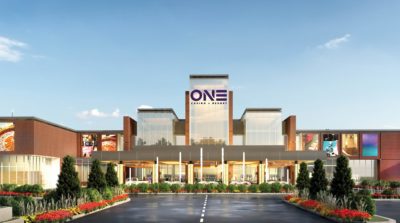Updated 3:30 p.m. Feb. 22
Virginia Attorney General Mark Herring joined Massachusetts and New York in suing Virginia-based bonding company Nexus Services Inc., alleging in the suit that its Libre by Nexus subsidiary “preys on consumers held in federal detention centers by offering to pay for consumers’ immigration bonds to secure their release.”
In exchange for those services, the suit alleges, “Libre demands large upfront fees and hefty monthly payments while concealing or misrepresenting the true costs of its services.”
Joined by the Consumer Financial Protection Bureau, the three states filed suit Monday against the company, the Libre subsidiary and its co-owners, CEO Micheal Donovan, Chief Financial Officer and Executive Vice President Richard Moore, and Nexus Services Director Evan Ajin, in the U.S. District Court for the Western District of Virginia. The suit alleges they violated the federal Consumer Financial Protection Act of 2010 and “engaged in deceptive and abusive acts or practices in connection with Libre’s offer of credit to consumers for their immigration bonds,” and that Nexus and the three individual defendants “knowingly or recklessly provided substantial assistance to Libre in its deceptive and abusive acts or practices.”
In a statement issued Monday afternoon, Donovan said, “Libre by Nexus categorically denies all allegations in the complaint filed against the company today and looks forward to our day in court.” The company, he adds, “is committed to fighting for immigrants scarred by the torture of ‘civil’ immigration detention. While we have fought to release tens of thousands of immigrants from detention, especially during the last four years, the AGs have taken time and money to investigate our company. These same AGs have defended their police and prison guards in abuse cases, some of which have been funded by Libre. The result of their years-long investigations is a poorly drafted complaint that rehashes allegations the company has successfully defended in three different legal actions. They are still defending the corrupt prison guards.
“While the federal government continues to detain scores of immigrants, the AGs have ignored the fact that these detention centers operate within their own borders. From Buffalo, [New York], to Farmville to Suffolk, [Massachusetts], immigrants are tortured while Herring, [New York Attorney General Letitia] James and others conduct a shadowy investigation into the only company helping the immigrants they claim to be protecting,” Donovan’s statement says. He adds that the company funded lawsuits against Virginia on behalf of prisoners’ rights. “Libre is proud of its work and believes sunlight is the best disinfectant. We plan to vigorously defend this suit and prevail at trial.”
Nexus has been based in Atlanta since 2019, but its founders are residents of Fishersville and its principal place of business is in Verona, according to the complaint. Since its founding in Augusta County in 2013, the company has drawn considerable scrutiny from multiple states, which accused it of taking advantage of immigrants caught in the U.S. Immigration and Customs Enforcement system and their family members. As of late last year, the U.S. Justice Department and several other federal and state agencies were investigating the company.
The company worked with bail bond agencies to pay bonds on immigrant clients so they could leave federal ICE custody, using GPS ankle monitors to insure their clients would appear in court. Clients of Libre by Nexus paid $420 per month for their monitors, although in June, the company announced it would switch from ankle monitors to a mobile app on clients’ phones, after a client in Florida died of COVID-19 in a hospital while still wearing a monitor.
According to the suit, “from at least 2014 until at least late 2017, Libre used a multi-part, written client agreement of over 20 pages, all written in English except for a single page written in Spanish,” although “the vast majority of Libre’s clients and their co-signers are Spanish speakers, most of whom do not read or write English and many of whom cannot read or write in any language.”
In December, Nexus settled a case with the state’s Bureau of Insurance, which claimed that Libre was acting as an unlicensed insurance agent, by agreeing to pay $425,000 and limiting its ability to collect monthly fees in Virginia. In November, the company reached a $5.5 million settlement with the California Department of Insurance.
The suit filed this week alleges that Nexus Services and Libre by Nexus are not licensed bail-bond agents in any state; according to news reports, founders Donovan and Moore, who are married, were convicted of writing bad checks and are not eligible to become bail bondsmen. They previously worked as lobbyists in Richmond representing the bail bond industry.
The suit also alleges that because immigration cases can languish in court for an average of three years, “Libre’s clients may have to make $420 monthly payments for that long, or longer,” incurring up to $17,000 in fees. Also, the company’s written agreement misleads clients to believe nonpayment will lead to re-arrest or other consequences, the suit says, even though “neither ICE nor any other agency is a party to Libre’s agreement.”
Further, since February 2018, “Libre has not provided any GPS monitoring service to thousands of consumers … because Libre’s GPS vendor cut off Libre’s remote access to the monitoring software at that time,” the suit says. The following month, the vendor decommissioned all of Libre’s monitors, due to delinquent payments, according to the complaint.
CFPB, Massachusetts, New York and Virginia have filed 17 counts against the company and asked the court to award Virginia up to $2,500 per violation, as well as $1,000 per violation in legal fees, along with other damages and restitution. The plaintiffs also seek to “enjoin defendants from making material misrepresentations … and engaging in other deceptive, abusive and unlawful conduct alleged in the complaint.”

Subscribe to Virginia Business.
Get our daily e-newsletter.




